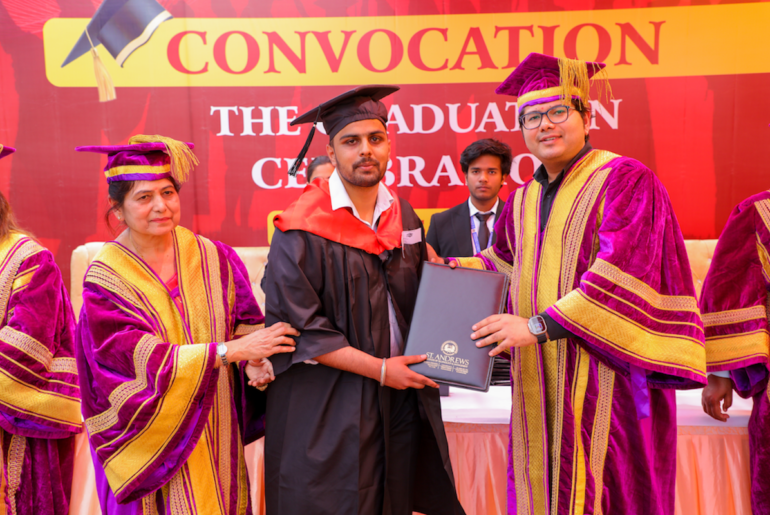MBA Eligibility Criteria in Top MBA Colleges in India
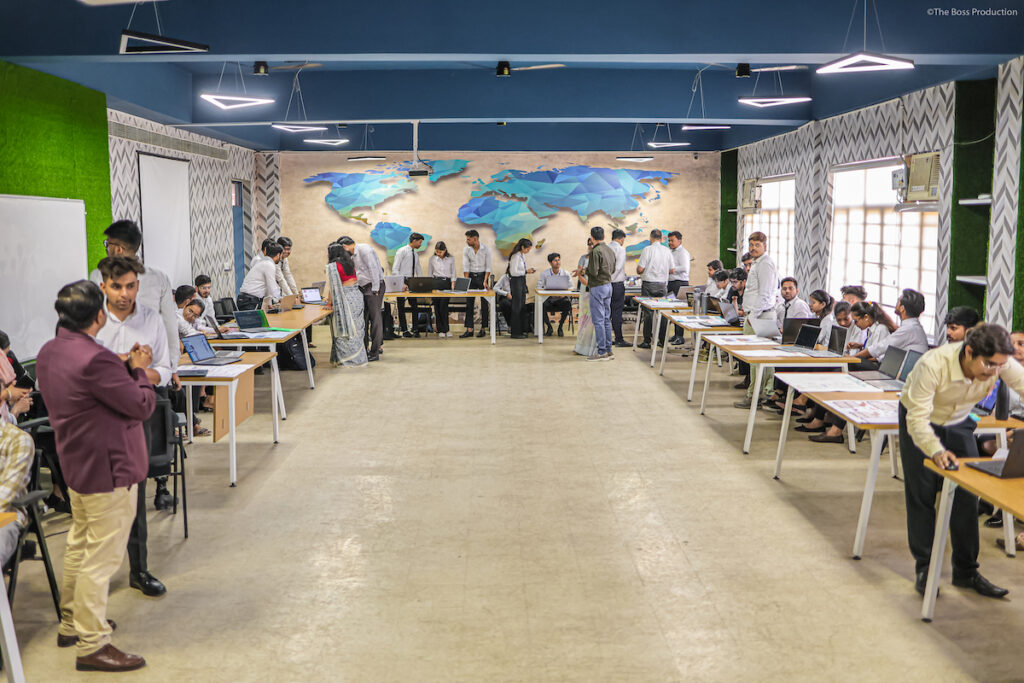
To pursue an MBA (Master of Business Administration) in India, candidates generally need to fulfill specific MBA course eligibility criteria. However, these requirements may vary slightly depending on the institution.
Here’s a general outline of the typical eligibility criteria:
Educational Qualification
The minimum qualification for candidates typically involves having earned a bachelor’s degree in any discipline from a recognised university or institution. While most MBA courses welcome graduates from diverse fields, certain specialized programs may impose specific requirements related to the candidate’s undergraduate degree.
Minimum Percentage
Several institutions necessitate candidates to attain a minimum percentage or CGPA (Cumulative Grade Point Average) in their bachelor’s degree. This percentage requirement varies among institutions but is typically around 50% to 60%.
Entrance Exams
In India, the majority of MBA courses mandate candidates to sit for specific entrance exams. The prevalent entrance exams for MBA admissions in India encompass CAT (Common Admission Test), XAT (Xavier Aptitude Test), MAT (Management Aptitude Test), and CMAT (Common Management Admission Test). Attaining a minimum score in these exams is requisite for admission eligibility.
Work Experience (Optional)
While not always mandatory, some MBA courses prefer candidates with prior work experience. This requirement varies among institutions and may range from 0 to 3 years of work experience.
Language Proficiency
Candidates may need to demonstrate proficiency in the English language, especially if the medium of instruction for the MBA program is English.
Other Requirements
Certain institutions may impose supplementary requirements like group discussions, personal interviews, statement of purpose (SOP), or letters of recommendation.
Specific Requirements
Some top MBA colleges may have specific eligibility criteria based on the specialization or type of MBA program (e.g., Executive MBA, Part-time MBA, or specialized MBA courses).
Some of the most opted courses in India and St. Andrews college or different Engineering college or Management colleges are as follows:-
- Btech
- Btech CSE
- Btech ETCE
- MTech
- BCA
- BBA
- MBA
- MCA
- DPharma – St. Andrews College of Pharmacy
- BPharma – St. Andrews College of Pharmacy
- BArch – St. Andrews College of Architecture
Highlights- MBA (Master of Business Administration)
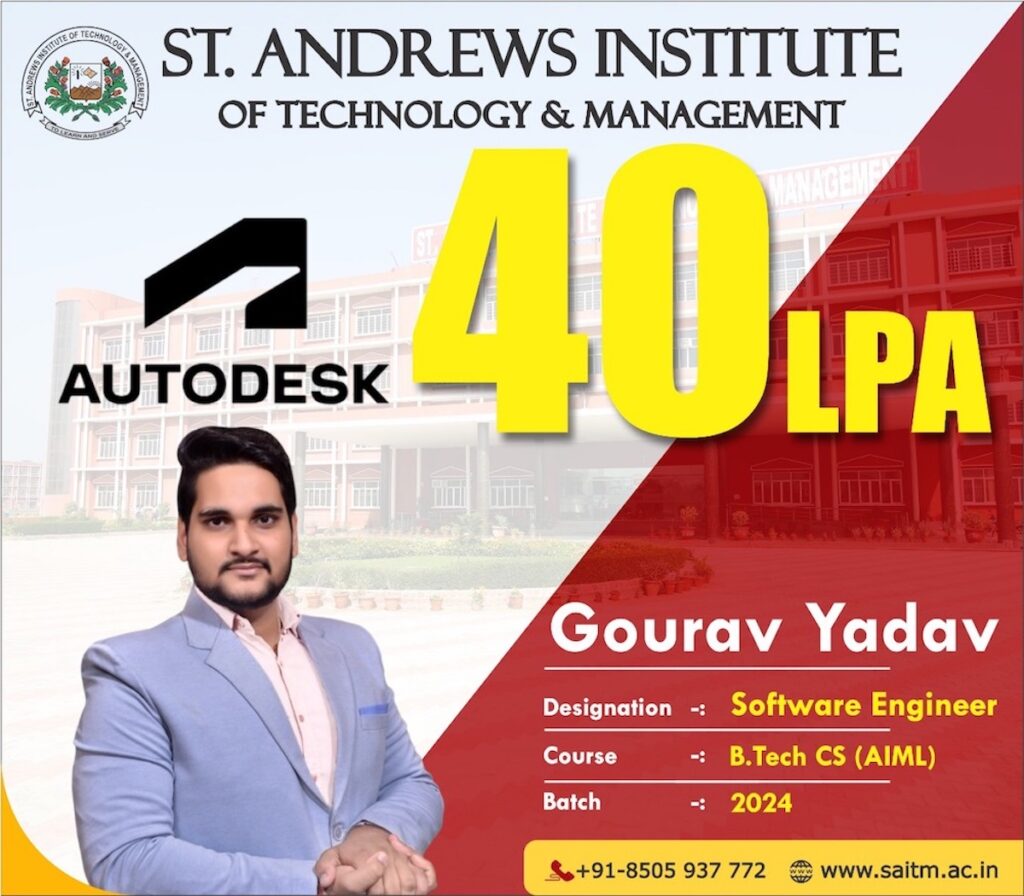
Here are some key highlights of pursuing an MBA (Master of Business Administration):
Versatile Skill Development
MBA degrees offer a comprehensive curriculum that equips students with a wide range of skills applicable across various industries and functions. These include leadership, strategic thinking, problem-solving, decision-making, communication, and financial analysis skills.
Career Advancement
An MBA degree can substantially boost career prospects by unlocking avenues for elevated positions and leadership roles within organizations. It equips individuals with the requisite knowledge and credentials to explore positions like management consultants, business analysts, marketing managers, finance managers, and entrepreneurs, contingent upon meeting MBA eligibility criteria.
Networking Opportunities
MBA degrees often bring together a diverse group of students with different backgrounds, experiences, and perspectives. This fosters a rich learning environment and provides extensive networking opportunities with classmates, alumni, faculty, and industry professionals, which can be valuable for future career growth.
Specialization Options
Many MBA degrees offer specialization tracks or concentrations, allowing students to focus on specific areas of interest such as finance, marketing, operations, human resources, entrepreneurship, or international business. This enables students to tailor their education to align with their career goals and interests.
Global Perspective
With the increasing globalization of business, MBA programs often include components such as international study tours, exchange programs, or coursework focused on global business issues. This exposure helps students develop a broader perspective and understanding of global markets, cultures, and business practices.
Entrepreneurial Skills
For aspiring entrepreneurs, an MBA can provide valuable knowledge and skills related to business planning, financial management, marketing strategies, and venture capital. Many MBA programs also offer resources and support for aspiring entrepreneurs to launch and grow their own businesses.
Higher Salary Potential
MBA graduates generally earn higher salaries compared to individuals with only a bachelor’s degree. The exact salary increase varies depending on factors such as industry, location, experience, and MBA specialisation, but overall, an MBA can lead to significantly higher earning potential over the course of one’s career.
Personal and Professional Growth
Pursuing an MBA involves rigorous academic study, experiential learning opportunities, and exposure to real-world business challenges. This journey fosters personal and professional growth, helping students develop confidence, resilience, adaptability, and a lifelong learning mindset.
Types of MBA Courses
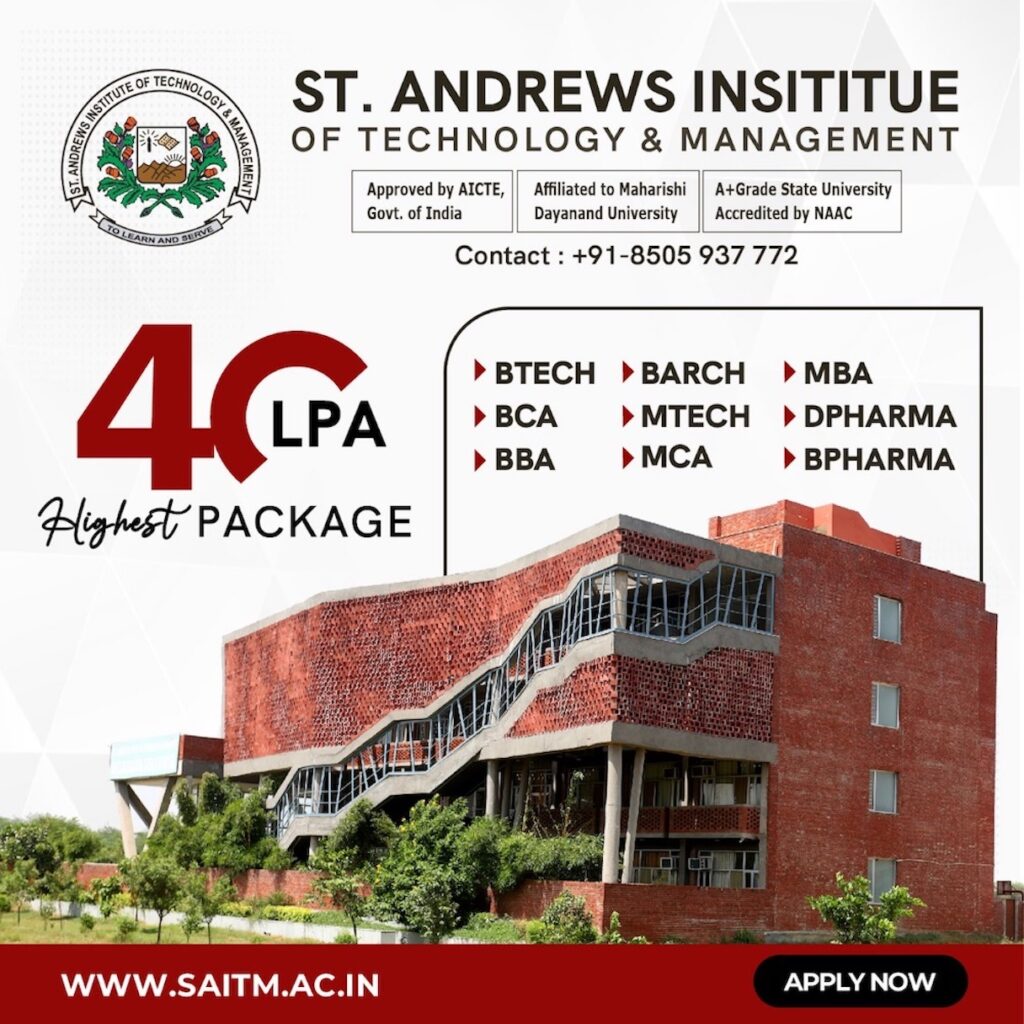
Various types of MBA courses are available to accommodate the diverse needs and preferences of students looking to pursue MBA.
Here are some common types:
Full-Time MBA
This traditional format entails students enrolling in a full-time program, typically spanning two years, contingent upon meeting MBA eligibility criteria. Full-time MBA programs provide an immersive learning journey featuring a comprehensive curriculum, internships, networking opportunities, and extracurricular activities. Typically, students attend classes on weekdays and may engage in summer internships between academic years.
Part-Time MBA
Part-time MBA programs cater to working professionals seeking to pursue an MBA while maintaining full-time employment, provided they meet MBA eligibility criteria. These programs typically offer classes during evenings, weekends, or online, enabling students to manage work, study, and personal commitments concurrently. Part-time MBA programs generally take more time to finish compared to full-time ones, often extending over three to five years.
Executive MBA (EMBA)
Executive MBA programmes are tailored for mid-career professionals with significant work experience and leadership potential. EMBA programs usually have a condensed format, allowing students to continue working while attending classes. Classes are often held on weekends, and the curriculum focuses on advanced management topics, leadership development, and strategic thinking.
Online MBA
Online MBA programs provide flexibility for students who favor remote learning or are unable to attend on-campus classes due to work or personal obligations, provided they meet MBA eligibility criteria. These programs deliver coursework via online platforms, enabling students to learn at their preferred pace and from any location with internet access. They frequently feature interactive lectures, discussion forums, and virtual team projects.
Specialized MBA
Specialized MBA programs allow students to focus on specific areas of interest or industries, such as finance, marketing, entrepreneurship, healthcare management, supply chain management, or information technology. These programs provide in-depth knowledge and skills relevant to the chosen specialization, preparing students for careers in specialized roles or industries.
Dual Degree MBA Programs
Some institutions offer dual degree programs that allow students to earn two degrees simultaneously, such as an MBA combined with a Master of Science (MS), Master of Engineering (MEng), Juris Doctor (JD), or Master of Public Administration (MPA). Dual degree programs provide interdisciplinary education and expanded career opportunities by combining business with another field of study.
Global MBA
Global MBA programs incorporate international perspectives and experiences to prepare students for careers in the global business environment. These programs often include study abroad opportunities, international residencies, or coursework focused on global business issues, cross-cultural management, and international markets.
Specialized Programs for Executives
Certain business schools provide specialized MBA programs tailored exclusively for executives, including healthcare executives, military officers, or government officials, provided they meet MBA eligibility criteria. These programs are crafted to tackle the distinctive requirements and hurdles encountered by executives within particular industries or sectors.
List of MBA Specialisations

MBA programs offer various specializations to cater to the diverse interests and career goals of students.
Here’s a list of common MBA specializations:
Finance
Focuses on financial management, investments, corporate finance, financial markets, banking, and risk management.
Marketing
Concentrates on market research, branding, advertising, consumer behavior, product management, digital marketing, and sales management.
Human Resource Management (HRM)
Covers topics such as talent acquisition, employee relations, performance management, training and development, compensation and benefits, and organizational behavior.
Operations Management
It encompasses supply chain management, logistics, quality management, process optimization, project management, and operations strategy.
Entrepreneurship
Prepares students to start and manage their own businesses, covering topics such as business planning, venture capital, startup financing, innovation management, and new venture development.
Information Technology (IT) Management
Focuses on IT strategy, information systems management, cybersecurity, digital transformation, IT project management, and emerging technologies.
International Business
Explores global business environments, cross-cultural management, international marketing, global strategy, international trade, and multinational operations.
Strategic Management
Concentrates on strategic planning, competitive analysis, business strategy formulation, corporate governance, mergers and acquisitions, and strategic leadership.
Supply Chain Management
Covers topics such as procurement, inventory management, demand forecasting, logistics and distribution, supply chain optimization, and supplier relationship management.
Healthcare Management
Focuses on healthcare policy, healthcare economics, healthcare operations, healthcare quality management, hospital administration, and healthcare marketing.
Sustainability and Environmental Management
Addresses sustainability issues in business, environmental management practices, sustainable supply chain, corporate social responsibility (CSR), and green business strategies.
Corporate Social Responsibility (CSR)
Focuses on ethical business practices, stakeholder engagement, social impact assessment, sustainability reporting, and CSR strategy implementation.
Management Consulting
Prepares students for careers in management consulting firms, covering consulting methodologies, client engagement, problem-solving, business analysis, and change management.
Real Estate Management
Focuses on real estate finance, property development, real estate investment analysis, property valuation, real estate law, and real estate marketing.
Public Administration
Covers public policy analysis, public finance management, governmental regulations, public sector accounting, and nonprofit management.
Media Management
Concentrates on media industry dynamics, media marketing, media economics, media production management, and media law and policy.
Luxury Brand Management
Focuses on managing luxury brands, luxury consumer behavior, luxury brand marketing, luxury retailing, and brand exclusivity.
Sports Management
Covers sports marketing, sports sponsorship, event management, sports analytics, sports finance, and sports law.
Family Business Management
Addresses unique challenges and opportunities in family-owned businesses, succession planning, family dynamics, governance structures, and strategic management of family enterprises.
Risk Management
Focuses on identifying, assessing, and mitigating business risks, including financial risk management, enterprise risk management (ERM), and regulatory compliance.
Admission Process for MBA Course
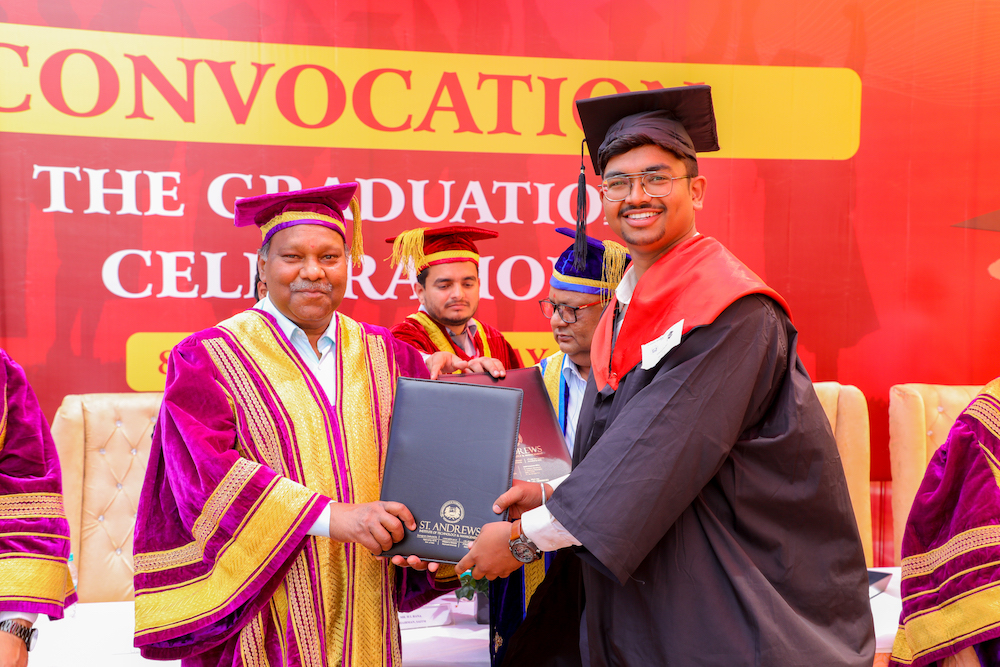
The MBA admission process generally encompasses various stages, including the submission of applications, undertaking MBA entrance exams, attending interviews, and undergoing other evaluation processes. While specifics may vary by institution, this outlines the typical admission criteria for MBA programs.
Research and Shortlisting
Prospective applicants research different MBA programs, considering factors such as program reputation, curriculum, faculty, alumni network, specialization options, location, and cost. Based on their preferences and career goals, they shortlist the programs they want to apply to.
Entrance Exam Registration
Numerous MBA programs necessitate applicants to undertake standardized entrance examinations like CAT (Common Admission Test), XAT (Xavier Aptitude Test), CMAT (Common Management Admission Test), or MAT (Management Aptitude Test). Applicants register for these exams and prepare accordingly.
Application Submission
Prospective candidates fulfill and submit online application forms for the MBA programs they aspire to join, subject to meeting MBA eligibility criteria. These applications commonly entail providing personal details, academic transcripts, relevant professional experience (where applicable), standardized test scores, essays or statements of purpose (SOP), letters of recommendation (LOR), and any other stipulated documents.
Entrance Exam
Applicants take the required entrance exam(s) on the scheduled date(s). The exam scores play a significant role in the admission decision and are used to shortlist candidates for further evaluation.
Shortlisting for Interviews
Based on the entrance exam scores and application materials, the MBA programs shortlist candidates for interviews. Some programs may also conduct group discussions, written ability tests (WAT), or other evaluations as part of the selection process.
Interviews
Shortlisted candidates are invited to participate in interviews, either in person, via video conference, or phone. The interviews assess candidates’ communication skills, motivation, leadership potential, and fit with the program.
Final Admission Decision
Following interviews and other assessments, MBA programs finalize their admission decisions. Successful candidates are then notified through offer letters or admission notifications, outlining any conditions or acceptance deadlines as per the admission criteria.
Acceptance and Enrollment
Admitted candidates review the offer letters, consider any financial aid or scholarship offers, and decide whether to accept the admission offer. Upon acceptance, candidates complete the enrollment process, including paying the admission deposit and submitting any required documents.
Preparatory Activities
Admitted students may participate in pre-MBA orientation programs, pre-reading assignments, or other preparatory activities to help them transition smoothly into the MBA program.
Commencement of Classes
The MBA program begins according to the academic calendar of the institution. Students attend orientation sessions, meet their classmates and faculty, and start their coursework.
Top Private MBA Colleges in India: Eligibility Criteria

Here’s a list of some top private MBA colleges in India along with their general eligibility criteria for admission:
Indian School of Business (ISB):
Eligibility: Applicants should have a bachelor’s degree or equivalent in any discipline. Additionally, they should have a minimum of two years of full-time work experience.
XLRI – Xavier School of Management:
Eligibility: Candidates should have a bachelor’s degree in any discipline with a minimum aggregate of 50% marks (45% for SC/ST candidates). Additionally, applicants need to appear for the XAT (Xavier Aptitude Test) exam.
St. Andrews Institute of Technology and Management, Gurgaon
Eligibility: Candidates must hold a bachelor’s degree in any discipline with a minimum aggregate of 50% marks to be eligible.
SP Jain Institute of Management and Research (SPJIMR):
Eligibility: Applicants should have a bachelor’s degree in any discipline with a minimum aggregate of 50% marks. Additionally, candidates need to appear for the CAT (Common Admission Test) exam.
Management Development Institute (MDI), Gurgaon:
Eligibility: Candidates should have a bachelor’s degree in any discipline with a minimum aggregate of 50% marks (45% for SC/ST candidates). Additionally, applicants need to appear for the CAT (Common Admission Test) exam.
International Management Institute (IMI), Delhi:
Eligibility: Applicants should have a bachelor’s degree in any discipline with a minimum aggregate of 50% marks. Additionally, candidates need to appear for the CAT (Common Admission Test) exam.
Entrance Exams accepted by top Private MBA Colleges in India

These prestigious private MBA colleges in India typically consider specific MBA entrance exams for admissions:
XLRI – Xavier School of Management:
Entrance Exam: XAT (Xavier Aptitude Test). XLRI primarily accepts XAT scores for admission to its MBA programs.
SP Jain Institute of Management and Research (SPJIMR):
Entrance Exam: CAT (Common Admission Test).
Management Development Institute (MDI), Gurgaon:
Entrance Exam: CAT (Common Admission Test).
International Management Institute (IMI), Delhi:
Entrance Exam: CAT (Common Admission Test).
Top MBA Colleges Accepting Popular MBA Entrance Exams

Here’s a list of some of the top MBA colleges in India along with the popular MBA entrance exams they accept for admission:
Indian Institutes of Management (IIMs):
Entrance Exam: CAT (Common Admission Test)
XLRI – Xavier School of Management:
Entrance Exam: XAT (Xavier Aptitude Test)
SP Jain Institute of Management and Research (SPJIMR):
Entrance Exam: CAT (Common Admission Test)
Management Development Institute (MDI), Gurgaon:
Entrance Exam: CAT (Common Admission Test)
Faculty of Management Studies (FMS), Delhi University:
Entrance Exam: CAT (Common Admission Test)
International Management Institute (IMI), Delhi:
Entrance Exam: CAT (Common Admission Test)
T.A. Pai Management Institute (TAPMI), Manipal:
Entrance Exam: CAT (Common Admission Test) or XAT (Xavier Aptitude Test)
Xavier Institute of Management (XIM), Bhubaneswar:
Entrance Exam: XAT (Xavier Aptitude Test) or CAT (Common Admission Test)
Great Lakes Institute of Management, Chennai:
Entrance Exam: CAT (Common Admission Test) or XAT (Xavier Aptitude Test)
National Institute of Industrial Engineering (NITIE), Mumbai:
Entrance Exam: CAT (Common Admission Test)
S.P. Jain Institute of Management and Research (SPJIMR), Mumbai:
Entrance Exam: CAT (Common Admission Test)
Top Private MBA Colleges in India with Fees

Here are some of the top private MBA colleges in India along with their approximate fees:
Indian School of Business (ISB), Hyderabad:
- Fees: INR 35-40 lakhs (for the entire program)
St. Andrews Institute of Technology and Management, Gurgaon
- Fees: INR 2.7 lakhs (for the entire program)
XLRI – Xavier School of Management, Jamshedpur:
- Fees: INR 20-25 lakhs (for the entire program)
SP Jain Institute of Management and Research (SPJIMR), Mumbai:
- Fees: INR 17-20 lakhs (for the entire program)
Management Development Institute (MDI), Gurgaon:
- Fees: INR 20-25 lakhs (for the entire program)
Indian Institute of Foreign Trade (IIFT), Delhi:
- Fees: INR 18-20 lakhs (for the entire program)
International Management Institute (IMI), Delhi:
- Fees: INR 15-20 lakhs (for the entire program)
Specialisations offered by Top Private MBA Colleges in India
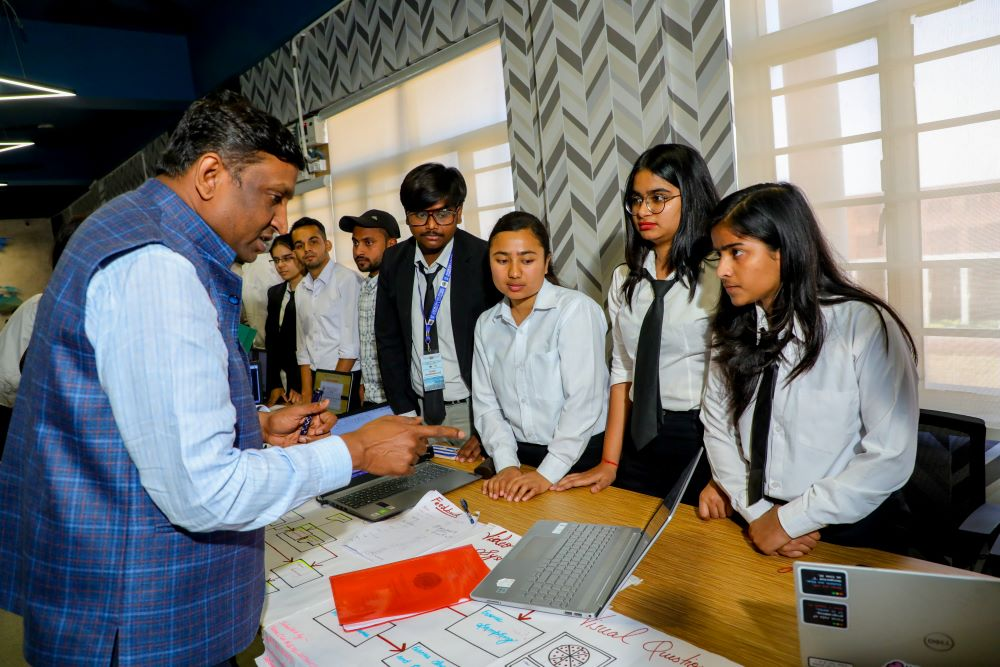
Top private MBA colleges in India typically offer a wide range of specialisations to cater to diverse career aspirations and industry demands.
Here are some common specializations offered by these institutions:
Indian School of Business (ISB), Hyderabad and Mohali:
- General Management
- Finance
- Marketing
- Operations
- Strategy
- Entrepreneurship
St. Andrews Institute of Technology and Management, Gurgaon
- Marketing Manager
- Financial Analyst
- Human Resources Manager
- Information Systems Manager
- Business Analytics
XLRI – Xavier School of Management, Jamshedpur:
- Human Resource Management (HRM)
- Business Management (BM)
- General Management Program (GMP)
- Executive Development Program (EDP)
- Fellow Program in Management (FPM)
SP Jain Institute of Management and Research (SPJIMR), Mumbai:
- Finance
- Marketing
- Operations & Supply Chain
- Information Management
- Business Analytics
- Entrepreneurship & Family Business
Management Development Institute (MDI), Gurgaon:
- Marketing Management
- Human Resource Management
- International Business
- Operations Management
- Public Policy Management
International Management Institute (IMI), New Delhi:
- Marketing
- Finance
- Human Resource Management
- Operations Management
- Strategy & Innovation
- Business Analytics
Great Lakes Institute of Management, Chennai and Gurgaon:
- Finance
- Marketing
- Operations Management
- Business Analytics
- Entrepreneurship
- Product Management
Indian Institute of Foreign Trade (IIFT), New Delhi and Kolkata:
- International Business
- Finance
- Marketing
- Trade Analytics
- Operations Management
- Strategy & Consulting
Browse Top MBA Colleges By Location

Here are some of the top MBA colleges in India categorized by their locations:
Delhi NCR:
Indian Institute of Management (IIM), Delhi
Faculty of Management Studies (FMS), Delhi University
Management Development Institute (MDI), Gurgaon
St. Andrews Institute of Technology and Management, Gurgaon
International Management Institute (IMI), New Delhi
Indian Institute of Foreign Trade (IIFT), New Delhi
Mumbai:
SP Jain Institute of Management and Research (SPJIMR), Mumbai
Narsee Monjee Institute of Management Studies (NMIMS), Mumbai
Jamnalal Bajaj Institute of Management Studies (JBIMS), Mumbai
Tata Institute of Social Sciences (TISS), Mumbai
Bangalore:
Indian Institute of Management (IIM), Bangalore
Xavier Institute of Management and Entrepreneurship (XIME), Bangalore
Symbiosis Institute of Business Management (SIBM), Bangalore
Alliance School of Business, Bangalore
Hyderabad:
Indian School of Business (ISB), Hyderabad
Indian Institute of Management (IIM), Visakhapatnam (Andhra Pradesh, but close to Hyderabad)
Chennai:
Great Lakes Institute of Management, Chennai
Loyola Institute of Business Administration (LIBA), Chennai
Institute for Financial Management and Research (IFMR), Chennai
Kolkata:
Indian Institute of Management (IIM), Calcutta
Indian Institute of Foreign Trade (IIFT), Kolkata
Xavier Institute of Management (XIMB), Kolkata
Pune:
Institute of Management Development and Research (IMDR), Pune
Ahmedabad:
Indian Institute of Management (IIM), Ahmedabad
Mudra Institute of Communications (MICA), Ahmedabad
Entrepreneurship Development Institute of India (EDII), Ahmedabad
Important Dates for the MBA Entrance Examination

The important dates for MBA entrance examinations in India can vary each year, but here are the general timelines for some of the major MBA entrance exams:
CAT (Common Admission Test):
Notification: Usually released in July-August
Registration: Typically starts in August and ends in September
Exam Date: Usually held in late November or early December
XAT (Xavier Aptitude Test):
Notification: Usually released in August-September
Registration: Typically starts in August and ends in November
Exam Date: Generally held in the first week of January
MAT (Management Aptitude Test):
MAT is conducted four times a year in February, May, September, and December.
Notification: Released approximately one to two months before each exam
Registration: Usually starts a couple of months before the exam date
Exam Dates: Usually held in February, May, September, and December
CMAT (Common Management Admission Test):
Notification: Typically released in October-December
Registration: Usually starts in November-December and ends in January
Exam Date: Generally held in January
IIFT (Indian Institute of Foreign Trade) Entrance Exam:
Notification: Usually released in July-August
Registration: Starts in July and ends in September
Exam Date: Generally held in December
MBA Syllabus

The MBA subjects covered in a program can vary significantly based on the institution, program duration, and available specializations.
Overview of typical MBA course structure. Here’s a sample outline:
First Year:
Core Courses:
- Financial Accounting
- Managerial Accounting
- Economics for Managers
- Quantitative Methods for Business
- Corporate Finance
- Marketing Management
- Operations Management
- Organizational Behavior
- Strategic Management
Quantitative Analysis:
- Statistics for Business
- Data Analysis and Decision Making
- Operations Research
Leadership and Communication:
- Leadership Development
- Business Communication
- Negotiation and Conflict Resolution
Electives (Optional):
- Depending on the program structure, students may choose elective courses based on their interests or specialization.
Second Year:
Specialized Courses:
Courses based on chosen concentration or specialization, such as:
Finance: Investment Analysis, Financial Markets, Risk Management
Marketing: Brand Management, Consumer Behavior, Market Research
Operations/Supply Chain Management: Supply Chain Strategy, Logistics Management, Quality Management
Entrepreneurship: New Venture Creation, Innovation Management, Venture Financing
Healthcare Management: Healthcare Policy, Healthcare Operations, Healthcare Economics
International Business: Global Strategy, International Marketing, Cross-Cultural Management
Capstone Project or Thesis:
- Many MBA programs require students to complete a capstone project or thesis, which allows them to apply their knowledge and skills to solve real-world business problems or conduct research in their area of interest.
Internship (Optional):
- Some programs offer the opportunity for students to undertake internships during the summer between their first and second years, providing valuable practical experience in their chosen field.
Professional Development:
- Career workshops, seminars, and networking events to help students develop job search strategies, polish their resume and interview skills, and make professional connections.
Global Business Experience (Optional):
- Some MBA programmes offer opportunities for students to participate in international study trips or exchanges to gain exposure to global business practices and cultures.
FAQs
What is the eligibility for MBA?
In India, eligibility for an MBA usually requires a bachelor’s degree from a recognized university, preferably with a minimum percentage or CGPA. Candidates must typically qualify in national-level entrance exams like CAT, XAT, MAT, CMAT.
While work experience is frequently favored, it might not be obligatory for all programs in MBA colleges in India. Proficiency in English and fulfilling any supplementary requirements such as group discussions, personal interviews, or written essays may also be necessary.
The specific eligibility criteria can vary depending on the institution and program, so candidates should verify the requirements of their desired MBA programs, especially when considering private colleges.
Who is eligible for MBA college?
Candidates who possess a bachelor’s degree from a recognized university, demonstrate proficiency in English, and have successfully cleared national-level entrance exams like CAT, XAT, MAT, and CMAT are generally eligible for admission to MBA colleges in India.
Some programs may require work experience, while others may have specific eligibility criteria based on the specialization or additional requirements such as group discussions and personal interviews.
Can I eligible for MBA after 12th?
Typically, MBA programs require a bachelor’s degree as the minimum educational qualification. Therefore, you cannot pursue an MBA directly after completing 12th grade in most cases.
However, some institutions offer integrated MBA programs that combine undergraduate and postgraduate studies, allowing students to pursue an MBA after completing 12th grade.
These integrated programs, commonly spanning five years or more, are available in certain MBA colleges in India and may entail specific eligibility criteria. If you’re considering pursuing an MBA directly after 12th grade, it’s recommended to thoroughly research these integrated programs and their eligibility requirements.
Who is eligible for MBA placement?
Eligibility for MBA placement typically depends on several factors:
Academic Performance: Candidates with a strong academic record, including performance during their MBA program, are often preferred by recruiters.
Relevant Skills and Experience: Employers look for candidates with relevant skills and experience that match the job requirements. Internships, projects, and extracurricular activities during the MBA program can enhance employability.
Communication and Interpersonal Skills: Effective communication, leadership qualities, teamwork, and interpersonal skills are essential for success in the workplace and are valued by recruiters.
Industry Knowledge: Candidates who demonstrate a good understanding of the industry and its trends through coursework, internships, and networking have an edge in the placement process.
Performance in Interviews: Clearing the recruitment process, which typically includes written tests, group discussions, and personal interviews, is crucial for securing placements.
Which is the best private MBA school in India?
Determining the “best” private MBA school in India can depend on various factors including faculty expertise, infrastructure, industry connections, placement records, program curriculum, and student satisfaction.
However, some of the top private MBA schools in India, known for their quality education and strong reputation, include:
- Indian School of Business (ISB), Hyderabad and Mohali
- XLRI – Xavier School of Management, Jamshedpur
- St. Andrews Institute of Technology and Management, Gurgaon
- SP Jain Institute of Management and Research (SPJIMR), Mumbai
- Management Development Institute (MDI), Gurgaon
Which is India’s no. 1 MBA college?
Indian Institute of Management Ahmedabad (IIM-A) is widely regarded as India’s top MBA college. Renowned for its academic distinction, distinguished faculty, industry affiliations, and outstanding placement track record, IIM-A perennially stands out as one of the foremost MBA colleges in India.
Is a private MBA worth it?
The worth of a private MBA hinges on several factors, including the reputation of the institution, quality of the program, expertise of the faculty, alumni network, placement opportunities, and return on investment, particularly when considering the best MBA colleges.
While private MBA colleges in India may entail significant costs, many of them offer exceptional education and networking opportunities that can boost career prospects, rendering the investment valuable for specific individuals.
It’s essential to research thoroughly and consider personal goals and financial circumstances before deciding if a private MBA is worth it.
What is the minimum MBA fee in India?
The minimum MBA fee in India can vary depending on several factors such as the reputation of the institution, program duration, infrastructure, faculty expertise, and amenities provided.
Typically, MBA programs offered by government or public MBA colleges in India tend to feature lower tuition fees compared to those in private institutions. For instance, at government institutions such as the Indian Institutes of Management (IIMs), the entire program’s fee can commence from approximately INR 2-3 lakhs for Indian nationals.
However, fees can vary significantly based on the institution, program type (full-time, part-time, executive), specialization, and other factors. It’s essential to research specific institutions and programs to get accurate information about MBA fees in India.
What is the Salary after MBA?
In India, MBA salaries range widely depending on factors like industry, experience, and specialization. Fresh MBA graduates may earn around ₹6-12 lakhs per year, with potential for rapid growth. Senior management positions can command salaries exceeding ₹25 lakhs annually. Industry trends and economic conditions also influence MBA salary prospects.

